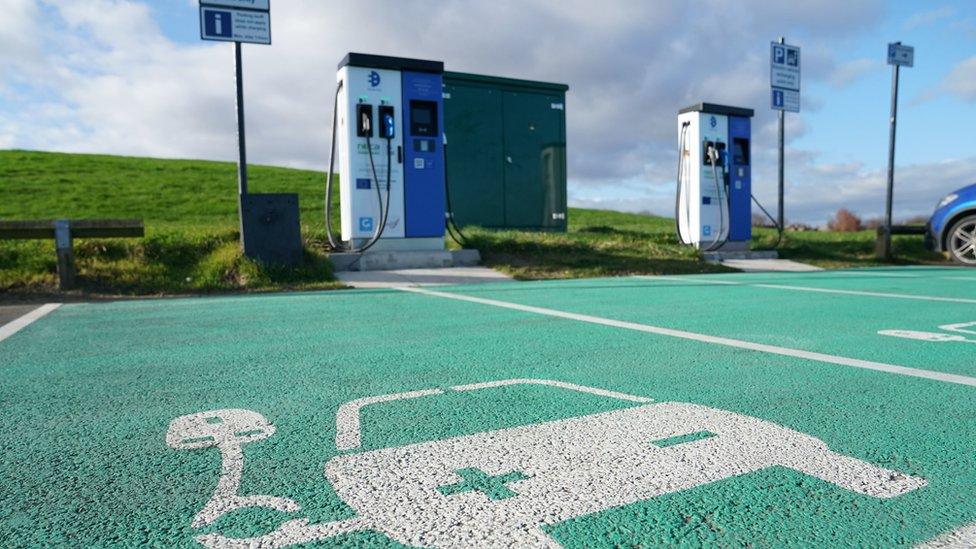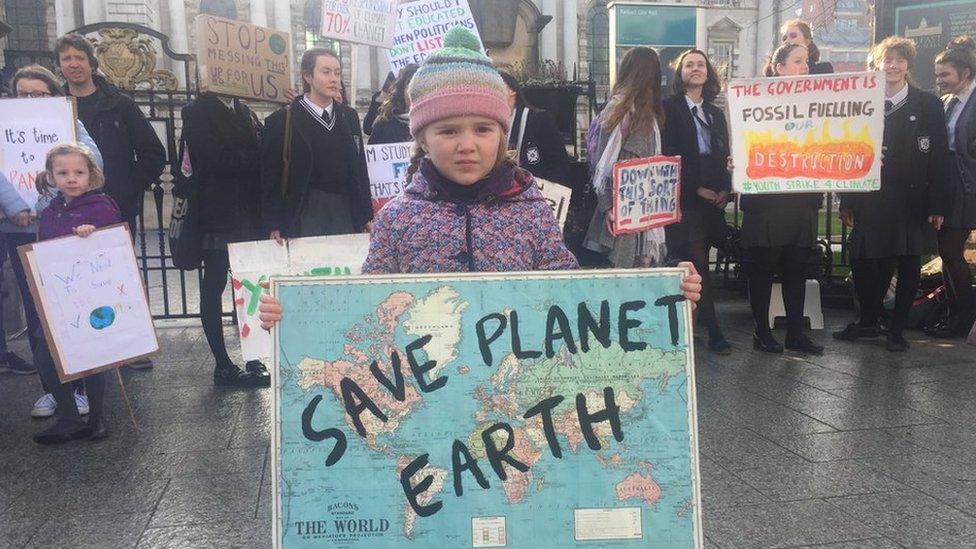Climate change: Edwin Poots pushes on with own NI climate bill
- Published

A private members climate bill was introduced to the Assembly on Monday
The environment minister is pressing ahead with plans for his own climate bill, even though another one has begun its progress through the assembly.
Edwin Poots will take proposals to the executive for approval this week.
If supported, the work will return to Stormont's bills office for formal drafting.
Mr Poots said a recently completed public consultation would ensure his bill would be "fit for purpose, achievable and ambitious".
A private members climate bill was introduced to the Northern Ireland Assembly on Monday, in what environmentalists described as an "historic" moment.
If passed it would commit Northern Ireland to achieving net zero carbon emissions by 2045.
It is believed the departmental bill will have a longer timeframe and a less stringent target, reflecting a recommendation from a government climate advisory body.
Bill 'reflects view of stakeholders'
The Committee on Climate Change said that given Northern Ireland's economic reliance on agri-food, an 82% cut in emissions by 2050 would be an equitable contribution to the UK's wider net zero ambition.
It said there was no technical reason Northern Ireland could not get to net zero, but it would mean a reduction in agricultural output.
Agriculture is the biggest emitter of greenhouse gases here - most of it is methane from cattle.
The minister said a recent consultation on policy proposals for his bill had taken the views of the agriculture, environment and business sectors.
"Most importantly bill targets will reflect the views of the stakeholders who will help us achieve it," he added.
Farmers have said they are up for the climate challenge, but they want a re-examination of the warming contribution of methane, a potent, but short-lived greenhouse gas.
They also haev said account needs to be taken of the carbon storing done on farms in hedges, soils and grassland.
Related topics
- Published28 May 2020

- Published22 March 2021

- Published9 December 2020
